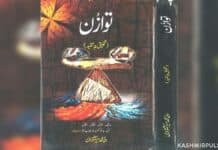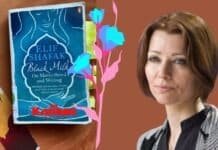
Dead Poets Society (1989) is an inspiring drama directed by Peter Weir. It is about a great teacher, Mr Keating, who gives credence to both the skeleton and the soul of creativity. His enactment of literary aptitude augments the appetites of poetry-hunting. His stage execution makes him an inborn teacher with some innate brilliance to pave an unorthodox path to teaching with an infinite capacity. He inspires his students to venture into engaging creative endeavours rather than to be robotic performers.
Watching this movie again and again pinched me to question its accuracy of logic and intellect since it stands for Humanities. No doubt here we have a drama that fairly staggers us, but it doesn’t set all the ordinary rules of criticism at defiance.
Immersing into the artificiality of the movie, any sniveller or tea-drinking writer or any dilettante will start to fit himself with the attributes of throbbing blood and flesh of literature. What Mr Keating stresses in the whole movie is feeling and not thinking. I won’t pick a fight over the term ‘carpe diem’ for it applies in any sense to anyone. But when Mr Keating comes to explain why we should read poetry, the explanation is somehow disappointing:
“We don’t read and write poetry because it’s cute. We read and write poetry because we are members of the human race. And the human race is filled with passion.”
Passion alone doesn’t suffice the necessity to read poetry. It’s ‘anti-intellectualism’ in the movie that gallops against the critical illumination and the inner light of the work. But at the same time, this all is consigned to oblivion to highlight the marquee value of the movie that is to overcome the orthodox teaching methods.
Although Latin is Greek to me but Mr McAllister’s teaching of Latin is in itself a mess: Agricolam, Agricola, Agricolae, Agricolarum, Agricolis, Agricolas, Agrilcolis. Mr Keating, in comparison, is a challenger in stature, pride, stride, and scope of personality. Any time, he is likely to tip his students out of the boat to see whether they sink or swim.
The introduction of Pritchard Textbook, Understanding Poetry by Dr J Evans Pritchard, PhD, can not be taken as mischievous academic criticism of the most influential poetry text of the 20th century, Cleanth Brooks and Robert Penn Warren’s Understanding Poetry (1938). As literature is vast, so is cinema. It simply annihilates the borders of understanding poetry and lets it gush forth its warmth and zephyr in every horizon instead of measuring poetry in cups and glasses. This border-cross is to ace a tough traditional academic test of its own time.
To rip out the page from the book is not to be taken offensive but an encouraging symbol that strolls through all the scenes in the movie. It signifies finding one’s own voice. The movie is brimming with graphic examples of iconic moments. As Mr Keating leaps up to desk: “Why? I stand on my desk to remind myself that we must constantly look at things in a different way.”
Keating’s unconventional method of teaching leads him to the ideology of Emerson, which is to go where there is no path and leave a trail. Although Mr Keating’s reading of Robert Frost and Walt Whitman is superficial but it is in no way misleading. We have to look at his forte, which is not to entice rickshaw drivers to relish poetry academically but to capture their ordinary lives in its amazement to seize the perfect day that’s in their fate. It successfully creates a poetic society in everyone’s heart.
Putting aside the scholarly reading of poetry, to feel the poetry for pleasure’s sake is not an unworthy step to procure contentment and inner peace. Dead Poets Society succeeds in reflecting the charm of being dazzled by poetry. Critics who criticize the literary value and inspiration of the film are disregarding the huge stair that ascends Todd Anderson-like novice to the realm of creativity. Of his initial effort, Neil Perry shouts on snatching his paper, ‘I’m being chased by Walt Whitman’. The film is brimming with such gestures that inspire us to the way. But critics like that are not unlike Mr McAllister: Cynics.
The film has been voted the greatest school film ever made and is one of the most inspirational films of all time, according to The Guardian. What makes it inspirational is its way of making you learn to think for yourself. If poetry in public imaginary is the realm of feeling rather than thinking! Let it be! When did any action of the movie deny that Humanities don’t train thinkers or Humanities don’t train employees?
Todd Anderson’s shift from a phobic cowardice to the marvellous imaginative poetic bravery can work parallel symbolically for the academicians or particularly the professors of literature for their elevation of intelligent standards of work and criticism in their field. But in the movie, we can’t exchange Mr Keating’s role to Mr J.C Ransom. Mr Keating is a captain-like actor and Mr Ransom an intellectual academic.
The movie has the capacity to be watched by all future generations, especially the aspiring literature students to get mature enough and bloom. It could be visualized as the crawling stage of a literary infant who is yet to see the grace and grandeur of art and creativity. Each dialogue in this drama has its own charm, which makes it one of the finest specimens to come out of existing rote learning and hyper-competitiveness. In transforming the voracious readers, budding poets and literature students into the creative wanderers, the drama deserves due praise.
Follow Us
The Kashmir Pulse is now on Google News. Subscribe our Telegram channel and Follow our WhatsApp channel for timely news updates!



![Dark Endeavour [Book Review] Dark Endeavour [Book Review]](https://kashmirpulse.com/wp-content/uploads/2022/06/Dark-Endeavour-Book-Review-218x150.jpg)






